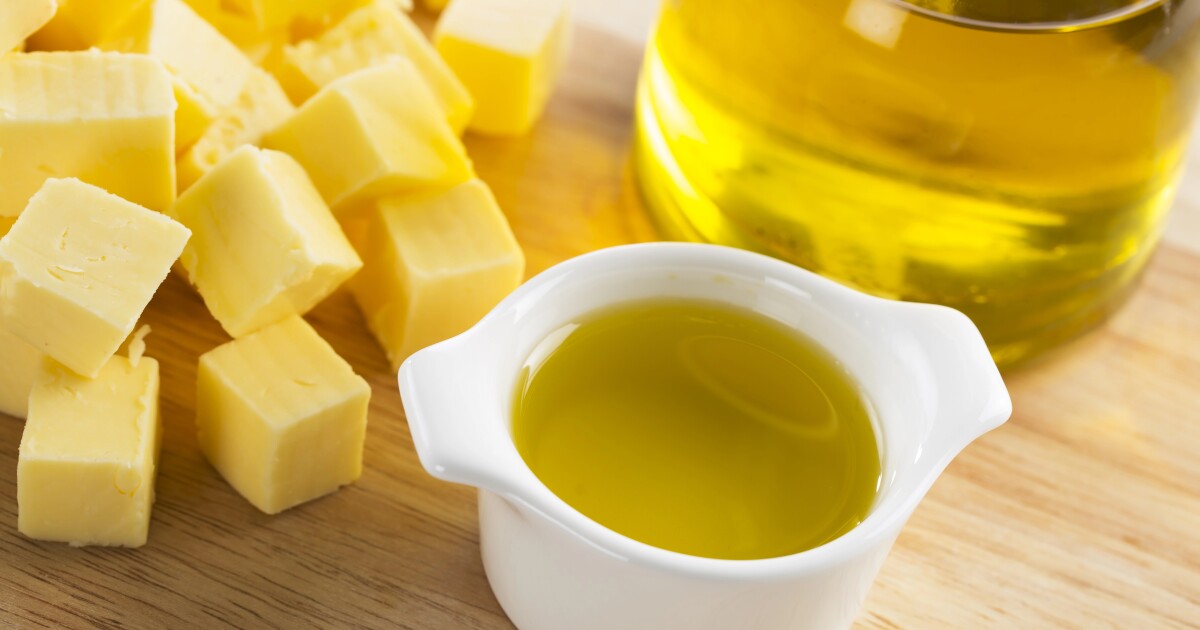It’s well established that obesity significantly increases your risk of many types of cancer, but a decade-long study has uncovered that there are specific dietary fat drivers that promote tumor growth – and others that don’t. In this landmark study, scientists found that animal fats – butter, lard and beef tallow – impair the immune system’s response to tumors, however, plant-based fats like palm, coconut, and olive oil don’t. And some of these may even help in the fight.
Researchers at Princeston University’s Ludwig Cancer Research set out to investigate whether it’s the amount of fat (obesity) or the type of dietary fat that impairs the immune system’s ability to fight cancer. They suspected it wasn’t just obesity, but animal fats specifically, that were sabotaging immune cells.
Their work comes in the wake of a landmark 2016 study out of the International Agency for Research on Cancer that, gathering dozens of studies, found consistent evidence linking higher amounts of body fat to an increased risk of at least 13 types of the disease, including breast, colon and liver.
But the Ludwig team thought it might be more nuanced than that. And building on earlier research that demonstrated how obesity hampers the immune system’s cytotoxic T lymphocytes (CTL) cells and natural killer (NK) cells in their ability to fight cancer growth, they found that not all dietary fat intake is created equal.
In the study, mice were fed high-fat diets of equal calories but different fat sources – animal (butter, lard, beef tallow) and plant (palm oil, olive oil, coconut oil). Once obese, the mice were implanted with tumor cells from a variety of cancers, including colon and melanoma. They then tracked how quickly these tumors grew.
The researchers then analyzed metabolites – small molecules produced when cells break down nutrients – to understand how different fats affected the immune system. They found that in obese mice fed animal fats, harmful fat-derived metabolites called long-chain acylcarnitines built up inside CTL and NK cells. These molecules interfered with the cells’ mitochondria, the parts of the cell that generate energy, causing the immune cells to lose their power and fail to fight cancer cells effectively.
In contrast, these damaging metabolites didn’t accumulate in the mice on plant-based fats – their CTL and NK cells stayed active and were able to seek out and attack tumors. And the palm oil-based diet helped to keep NK immune cells working by boosting the activity of the gene c-Myc, which regulates energy production and use.
“Our study reveals that the source of dietary fat, not adiposity itself, is the primary factor that influences tumor growth in obese mice,” said lead researcher Lydia Lynch. “We found that high-fat diets derived from lard, beef tallow or butter compromise anti-tumor immunity and accelerate tumor growth in several tumor models of obese mice. Diets based on coconut oil, palm oil or olive oil, meanwhile, do not have this effect in equally obese mice. Our findings have implications for cancer prevention and care for people struggling with obesity.”
In CTLs, the molecules caused deep metabolic dysfunction in mitochondria, crippling their anti-tumor function. This also hampered their production of a factor (IFN-γ) that ultimately disabled their cancer-killing arsenal.
The researchers also tested human NK cells from individuals with obesity and found similar mitochondrial and immune dysfunction, which suggests there’s a direct fat-related driver that affects the immune system’s ability to fight cancer growth.
“These findings highlight the significance of diet in maintaining a healthy immune system,” said Lynch. “More important, they indicate that modifications to fat in the diet may improve outcomes in obese people undergoing treatment for cancer and suggest such measures should be clinically evaluated as a potential dietary intervention for such patients.”
Obesity is still a key player in cancer risk, but this research shows that not all fat is equal – and diet appears to play a more active role than previously understood.
The team’s study is published in the journal Nature Metabolism.
Source: Ludwig Cancer Research
